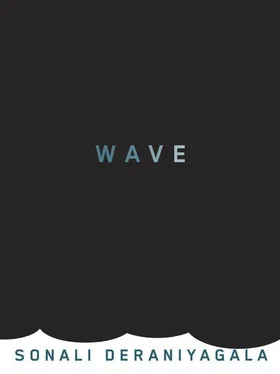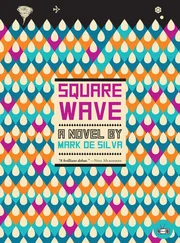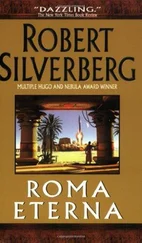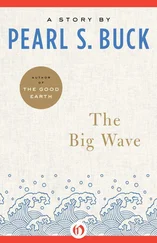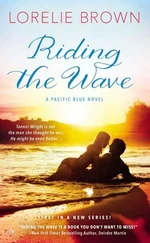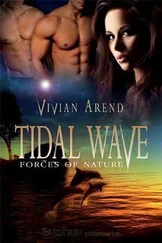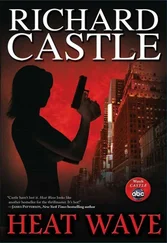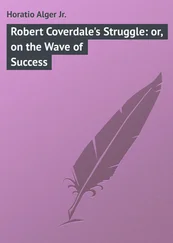I can also feel now the freedom of our Friday nights, when the babysitter came and we headed out. We’d eat at Odette’s in Primrose Hill or at Blue Diamond in Chinatown. We’d stop at Bar Italia on Frith Street for double espressos, and we’d take our time sipping them on the pavement outside, even on the coldest nights. Or we’d drive all the way to Green Street in East London, to a Punjabi café that made the best naan bread. Driving around London at night, I loved that, the city felt rightfully ours. True Londoner that he was, Steve understood the city, and I learned it with him. And now, often, when I revisit these places, I am warmed by remembering those easy evenings. But I also often reel. How can there be a London without Steve?
I remember the four of us driving home to North London on our last Sunday in England. We’d been to Fortnum & Mason to buy a Christmas pudding for my mother. Steve wanted to show the boys the new offices his research institute was moving to, near the Post Office Tower. It was raining, and I was in a hurry to get home. “Do it when we’re back in January,” I said. We’d had lunch at Fortnum’s that day, and Vik was thankful that finally we’d brought him to an English restaurant. While Malli considered himself Sri Lankan, Vik insisted he was English, because Daddy was. Steve also bought his favorite Dark Lime Marmalade that day, for when we returned from Colombo.
My friend Anita had cleaned out our kitchen that January, jams and marmalades and all. The first time I went back to our home, I stared at the empty gleaming spice jars in the cupboards, my head in a whirl. Now, each time I am in London, I restock our kitchen, bit by bit. Those white ceramic pots are again filled with turmeric and cloves and cinnamon and fenugreek and flakes of dried fish. But some things in our kitchen I can’t bear to even glimpse. I can’t touch Steve’s oyster knife. I dare not open his cookbooks. It would be too much to see a chili oil stain on a barbecued squid recipe or a trace of a mustard seed on the aubergine curry page of his Ceylon Daily News Cookery Book .
O n Steve’s very first night in Sri Lanka, he leaped, half-clothed, into the ocean at Galle Face Green at midnight, and I said he was nuts. That was in 1984, when he was nineteen and in his second year at Cambridge and I was in my third. Steve, and our friends Kevin and Jonathan, had come to Colombo with me that summer. They all flung off their shirts that night and dived from the tarred promenade right into those big August waves before I could say anything about the ocean there being dirty or about the strong currents that lurked. We’d only come down to the seafront for a walk, not to swim. Now I had to take them home in the car with their grimy feet and soggy shorts and dripping underpants. Mad, silly boys, I scolded them later, and as always Steve objected to being called a boy, he was a man, and as always then I scoffed.
That first summer Steve played cricket on our street, shirtless and barefoot, with the small boys in my neighborhood. Kevin, Jonathan, and he sat on the high wall at the back of our garden, swigging from large bottles of Lion Lager. They gathered around my father in his library to examine his collection of ancient maps. At dinnertime they stuffed themselves with string hoppers and prawns, Steve’s devotion to my mother’s prawn curry beginning then. And after dinner I’d leave the door that led from the balcony to my bedroom unlocked for Steve, and he’d lie on the double bed he shared downstairs with Kev, waiting impatiently for my parents to finally turn in. At the time I still had that ugly painting of a girl playing a violin that someone gave me for my thirteenth birthday hanging in my room.
They had fifty pounds each, Steve, Kev, and Jonathan, to travel around the country for three months that summer. Steve sat next to me on the bus, the elbow he stuck out the window burning in the sun, and thrilled to the newness of the landscape of the southern coast. I held my nose as a child threw up in front. On the beach at Unawatuna, Jonathan wore a large floppy hat and read a biography of Lenin under a tree while Kev and Steve flung each other about in loutish mock fights, chanting, “come an’ have a go if you think you’re ’ard enough”—very childish, I thought. To prove to me they were capable of more profound emotions, they sang “Song to the Siren” sitting on a rock, declaring that when they first heard it played on John Peel Sessions , their hearts stopped.
We went on the train to Nuwara Eliya to spend a few days with my parents at the Grand Hotel, and Steve forgot to pack any clothes. How could you be so stupid, didn’t you think your bag was a bit light, I asked, and when Kev and Jonathan ran out of clothes to lend him, he wore mine, unconcerned. Kev took a photo of him swinging from the branch of a mossy tree on the top of Pidurutalagala Mountain looking ridiculous in my green top.
Four summers after that first trip, Steve arrived in Sri Lanka with a new suit, all his Smiths tapes, and a large carton of duty-free cigarettes for my grandmother, and we got married. We lived in Colombo for the next two years, renting an apartment with an old stone bathtub and overpolished cement floors, and an enormous spider named Insy who hid behind the kitchen sink.
And every night we did averages. We’d sit at the table after dinner, mosquitoes savoring our bare feet. Steve would give me the Wisden Cricketers’ Almanack and say, “Ask me something.” So: “Graeme Hick in 1987?” I’d ask. “Sixty-three point sixty-one,” he’d reply. “Viswanath, 1975?” “Eighty-five.” “Michael Holding?” “Twenty-three point sixty-eight.” “Cowdrey, 1965?” “Seventy-two point forty-four. No, no, seventy-two point forty-one.” And so it went. These were batting or bowling averages. He had to (and did) get them correct to the second decimal point. Riveting, married life.
Steve learned the rhythm of my family effortlessly. He joined in the afternoon gossip of my mother and aunts, egging them on with questions about saris and socialites. He bonded with Ma by admiring the rubies on her new earrings and riled her by insisting that her prized silver serving dish looked like the FA Cup. Still, my mother sent him an elaborate lunch every day in a tiffin carrier to the school where he taught economics and played lots of basketball. If his lunch was late, he’d phone my parents’ house, but Saroja, our cook, who insisted on calling him sudu mahattaya (“white gentleman”), although he pleaded with her not to, would be confused about who was calling until he announced loudly, “This is the white gentleman speaking,” leaving the other teachers in the staff room quite aghast. Steve impressed my young cousins with stories from London. His version of Dave and him challenging heavy-booted fascists selling their newspapers on Brick Lane skipped over the bit when the two of them were sent packing and crept into the nearest pub. Steve tried to match my father and uncle in their beer and whiskey drinking but couldn’t quite. Da showed Steve the correct way to tie a sarong.
At the temple on full-moon nights Steve patiently held my grandmother by her arm as she took her time distributing coins to rows of beggars who wished her prosperity in her next life. And he smiled even more patiently when she told him, “I really like you, Steve, but I wish Sonali married a nice Sinhala doctor, never mind.”
In those first years after we were married, Steve and I traveled around Sri Lanka in a rickety red van he’d borrowed from his school. That van stuttered up the steep road to Horton Plains, and on those chilly grasslands we saw the flashing eyes of hundreds of invisible sambar deer lance the twilight mist. And it was only after he’d inched that van back down a precipitous track that Steve calmly said, “Looks like the brakes are fucked.” It was not the brakes that gave up when we slid in the mud on the shores of the Minneriya lake. I bellowed at Steve for not noticing that the van’s tires had almost no tread, while near us a serpent eagle split open a fish’s gut.
Читать дальше
